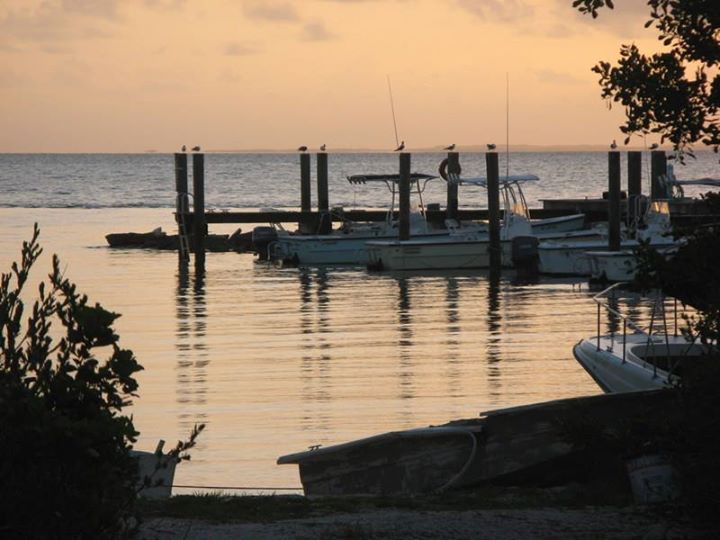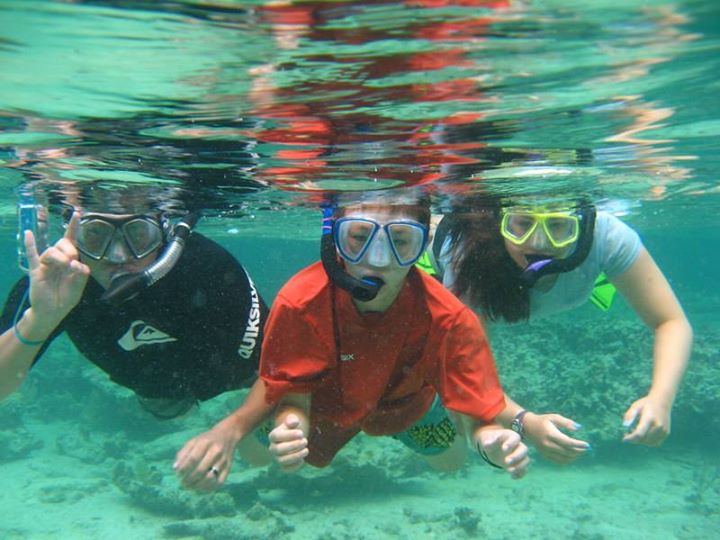
Who said exercise can’t be fun? Today, we had water polo as our morning exercise! It was Team Banana versus Team Strawberry in an epic battle for bragging rights. Team Banana took a quick lead considering they had two ringers, but after halftime and a rally from Team Strawberry, the game was a tie with 4 minutes to go. In the final minutes, Team Banana scored and the game was over…and just like that, we emerged from the water out of breath, but with smiles on our faces. What a great morning start to our final day!
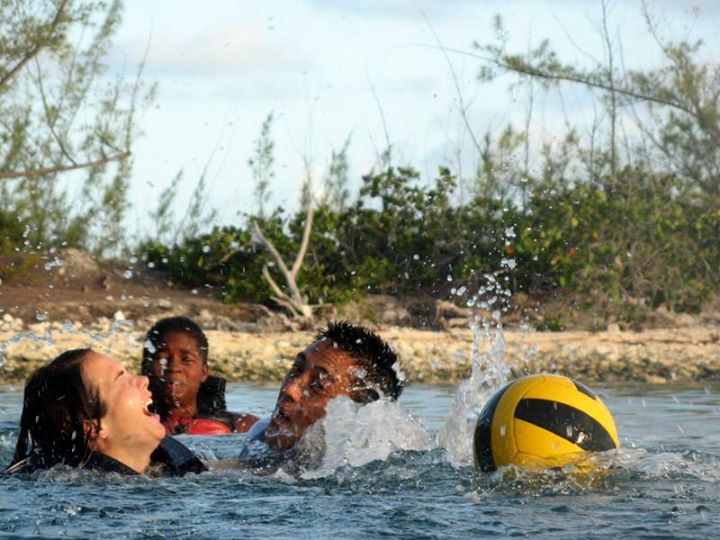
Not many people get the chance to snorkel on a coral reef; we are now part of this exclusive club. We rode our bikes to the location where we did our night snorkel. This was followed by a discussion about the importance of coral reefs to the ecosystem. We got to see the reef in all its beauty via snorkel and fins. There was an amazing variety of wildlife, including many species of fish, such as a spotted moray eel, parrotfish, grunts, snapper, and angelfish, along with a wide variety of corals and abundant plant life. After learning about and witnessing the importance of this vibrant ecosystem, we are sad to see the destruction of these amazing places, and hope to help conserve them in the future.
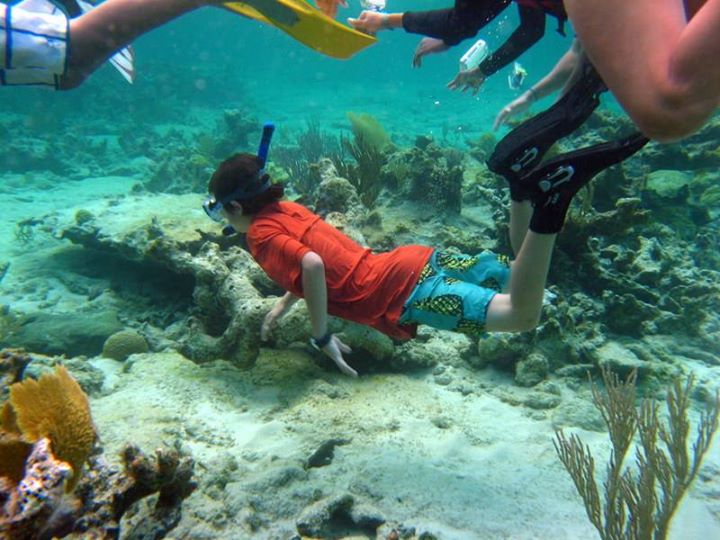
After exploring the coral reef, we biked over to Page Creek to observe the mangrove trees. Most people would think that mangroves are just ordinary plants, but they actually have many interesting characteristics. For example, there are three species of mangroves at Page Creek: black, white, and red. Each species has adapted in a unique way to extrude the salt out of the water. After we learned about the mangroves, we snorkeled in the tidal creek and looked around the trees’ roots.
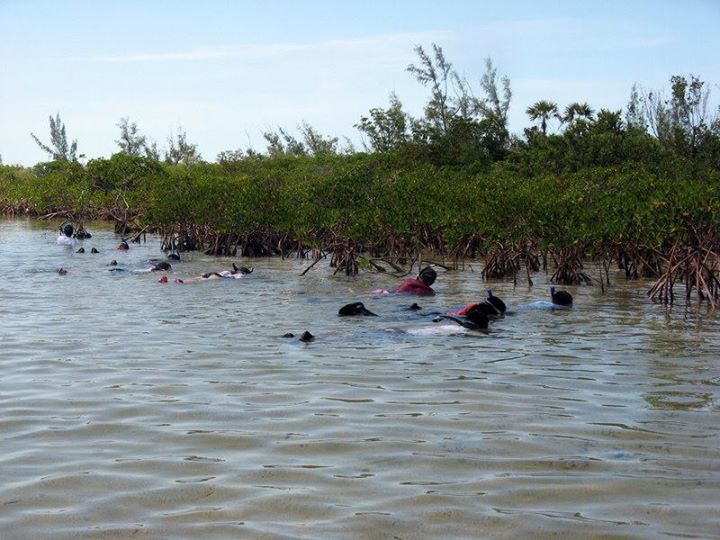
The mangrove trees are nurseries for several young species of fish, and we saw so many of the inhabitants. Among the creatures we saw were blue crabs, snapper, and pufferfish. Just like the coral reefs, the mangroves are an important part of the coastal ecosystem. Without the mangroves, the young fish would have to find a new nursery, and they could be killed more easily by predators. If people become educated on the importance of the trees and how the modernization and development of the coastal region reduces the mangrove populations, the destruction could be prevented.
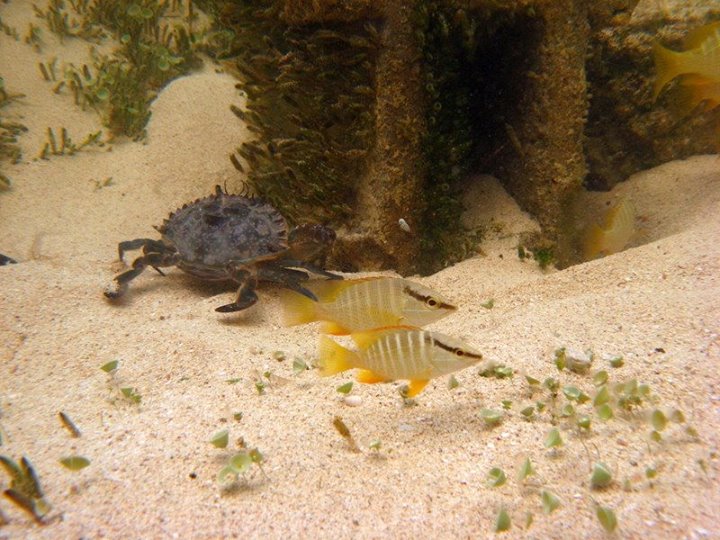
So long, Cape Eleuthera! We've thoroughly enjoyed our stay and plan to take what we've learned back home to our respective schools and districts. Thank you for the experiences to all the JASON staff, CEI staff, and Argonauts who made our trip so memorable. We asked all the Argonaut to share what they would remember the most about their time here:
Ana Delgado: "Turtle tagging!"
Eduardo Gonzalez: "Meeting Liz, the 'science fun specialist.'"
Heather Hughes: "Any act of conservation, no matter how small, contributes to a better world for everyone."
Helios Trevino: "I will never forget taking the time to learn about how our actions affect the environment and what we can do to ensure a better tomorrow."
Jake Ballard: "All the learning about animals and getting a new friend, Liz."
Jelilat Odubayo: “When I was able to swim in water deeper than my own height and actually being able to enjoy things."
Jessica McCoy: "Facing my fears!"
Joseph Sanchez: "Holding an 8-kg sea turtle by his shoulders for tagging. It makes the preservation effort hit home when you can personally experience it, or in this case, hold it in your hands."
Katherine Mills: "I loved the difference between the normal life and learning how I can change the world through simple actions."
Maxx Murray: "Being able to do real-world things as a middle schooler."
Shaena Ricks: "I got bit by an endangered species and named it!"
To end in an Island School quote, "Don't cry because it's over; smile because it happened."
